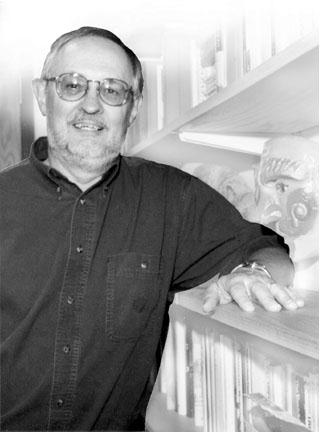Bergman, David Saul [Daniel Born and Dale Suderman]. Unpardonable Sins. Eugene, OR: Wipf and Stock, 2021. Pp. 200.
A bullet shatters a window in John Reimer’s room and strikes a plaque with Menno Simons on it. The plaque falls on a crouching John, leaving a serious gash in his head. Are we to assume that Our Leader is chastising John for letting his detective—aka counseling--impulses overwhelm his preaching responsibilities in his Lakeview Mennonite Church in Chicago?
Chris (Christ?)—a seminary student member of the church who refuses to take his medications for schizophrenia—sees angels, and questions and rants about the unforgivable sin/s, as found in the title of the novel and in I John 5:16: “. . . There is a sin unto death.” Exactly what sin that is in this novel is not clear, except that, as in other crime detective fiction, sins and sinners abound.
Such supra-literary possibilities give a uniquely thoughtful dimension to this successful piece of crime fiction. So does the smooth integration of abundant cultural allusions throughout the book—to literary works, authors, philosophers, theologians, historical figures, politicians, pop stars, music, art, even literary theorists.
They are appropriate because the members of this urban congregation are themselves highly educated people. Among them are the lawyer Nancy, moderator of the congregation; Alan Wiebe, theology professor; Mildred, secretary and good cook (“Mother”); and a cohort of “romantic” graduate students who seem to find God in Nature rather than in Scripture.
They function in the urban milieu of northern Chicago that gives the story its authenticity because it is so well observed and documented with telling details as John makes his everyday rounds, running along the lakeshore, in and out of hospitals, taxis and the El, cafes and bars, including one particularly raunchy gay bar. Others have written Mennonite-themed crime mysteries—such as Judy Clemens, P. J. Gaus, David Waltner-Toews, Armin Wiebe—but none are set in a large American urban culture, which gives Unforgivable Sins its special edge.
Oh, yes, the plot. Intending to help a friend of a friend, John Reimer investigates the unsolved murder and mutilation of David Talbot on a trail usually associated with gay hook-ups. Seeming to be a hate crime against gays, it grows more complicated when it appears that he was actually bi-sexual, part of a romantic triangle, and the unacknowledged son of a prominent alderman. Undeterred, John presses on into the dark area of Chicago politics.
Aristotle (to cite one of the allusions) was right. It is easy to complicate a plot but harder to untangle it satisfactorily. Unpardonable Sins concludes with a surprising, very noir scene, in a literal black night encounter of John with a compromised politician who was only a shadowy figure previously in the story. The melodrama includes extended explanation and fortuitous appearance of a police sergeant friend of John’s, who apprehends his would-be assailant. Some questions are left unanswered.
The deft, readable, purposeful style in which the book is written heralds a new, promising writer of fiction, “David Saul Bergman,” among U.S. Mennonites. That pleasing coherence is striking, since David Saul Bergman is actually the pen name for the collaborating pair of Daniel Born and Dale Suderman. I suspect that the story line derives from Suderman’s work as an addictions counselor and the literary enhancements and style come from Born, a literature PhD who worked for a time with the Great Books Foundation in Chicago.
The book is so successful that we might look forward to a series of crime mysteries led by the detective, John Reimer, Chicago Mennonite preacher.
